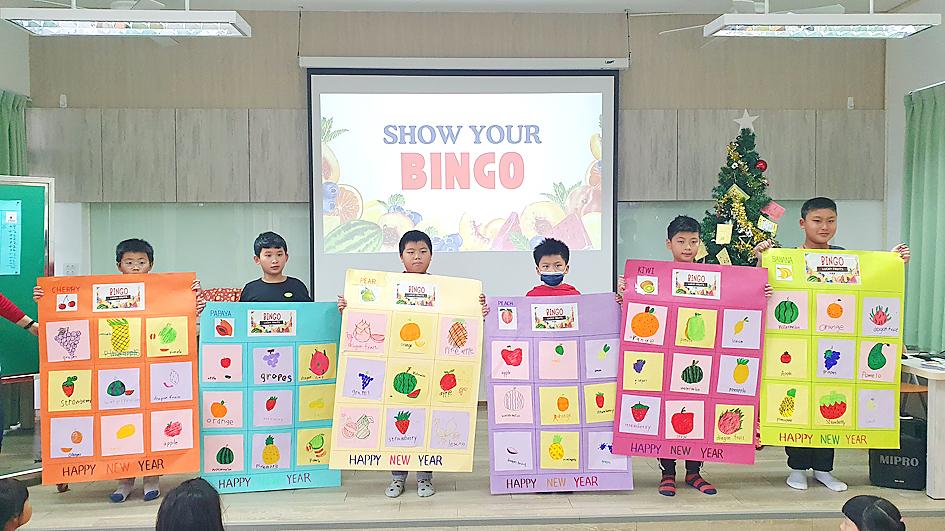Angelo J.Y. Koo, chairman of China Development Foundation, has been upholding the philosophy that "education is the best investment" to fulfill KGI Financial Holding Co’s corporate social responsibility. In recent years, the foundation has launched several scholarship and educational resource programs, such as the "Talent Cultivation Scholarship," "Tutoring Legacy Scholarship,” and "Vocational Education Scholarship" initiatives. This year, the foundation is introducing the "English 100" program to provide English teaching resources to 18 schools across Nantou, Chiayi, Yunlin and Pingtung counties. The program aims to reduce the educational divide for children in rural areas, benefiting 1,100 students.
Schools in Taiwan’s rural areas often face challenges in accessing English resources due to their geographic location and the relatively disadvantaged economic status of parents. China Development Foundation believes that "English" is a fundamental skill for children’s future competitiveness. To provide students with broader learning opportunities, the foundation is launching the "English 100" program this year. The initiative will help schools fill gaps in teaching resources, acquire digital learning tools, and provide diverse teaching materials, enabling students to deepen and broaden their English learning experiences.
Director Guo of Sin-Tsen Elementary School, Chiayi County, stated that with this subsidy, the school was able to purchase digital learning materials, effectively reducing resource disparities and creating a more efficient English learning environment. Section chief Chen of Beimei Elementary School, Chiayi County, also expressed gratitude to the "English 100" by China Development Foundation, which enabled the school to achieve excellent results in the Chiayi County English Day Art and Skills Competition, "the foundation's subsidy funding allowed the school to plan more diverse courses, greatly increasing students' interest in learning English."

Photo courtesy of China Development Foundation
The "English 100" plan by China Development Foundation continues the parent company KGI Financial’s focus on rural education, concretely practicing corporate social responsibility. In the future, the foundation will continue to address the needs of disadvantaged students, becoming a solid support for rural children and injecting stable power into social sustainability.

NO BREAKTHROUGH? More substantial ‘deliverables,’ such as tariff reductions, would likely be saved for a meeting between Trump and Xi later this year, a trade expert said China launched two probes targeting the US semiconductor sector on Saturday ahead of talks between the two nations in Spain this week on trade, national security and the ownership of social media platform TikTok. China’s Ministry of Commerce announced an anti-dumping investigation into certain analog integrated circuits (ICs) imported from the US. The investigation is to target some commodity interface ICs and gate driver ICs, which are commonly made by US companies such as Texas Instruments Inc and ON Semiconductor Corp. The ministry also announced an anti-discrimination probe into US measures against China’s chip sector. US measures such as export curbs and tariffs

The US on Friday penalized two Chinese firms that acquired US chipmaking equipment for China’s top chipmaker, Semiconductor Manufacturing International Corp (SMIC, 中芯國際), including them among 32 entities that were added to the US Department of Commerce’s restricted trade list, a US government posting showed. Twenty-three of the 32 are in China. GMC Semiconductor Technology (Wuxi) Co (吉姆西半導體科技) and Jicun Semiconductor Technology (Shanghai) Co (吉存半導體科技) were placed on the list, formally known as the Entity List, for acquiring equipment for SMIC Northern Integrated Circuit Manufacturing (Beijing) Corp (中芯北方積體電路) and Semiconductor Manufacturing International (Beijing) Corp (中芯北京), the US Federal Register posting said. The

India’s ban of online money-based games could drive addicts to unregulated apps and offshore platforms that pose new financial and social risks, fantasy-sports gaming experts say. Indian Prime Minister Narendra Modi’s government banned real-money online games late last month, citing financial losses and addiction, leading to a shutdown of many apps offering paid fantasy cricket, rummy and poker games. “Many will move to offshore platforms, because of the addictive nature — they will find alternate means to get that dopamine hit,” said Viren Hemrajani, a Mumbai-based fantasy cricket analyst. “It [also] leads to fraud and scams, because everything is now

MORTGAGE WORRIES: About 34% of respondents to a survey said they would approach multiple lenders to pay for a home, while 29.2% said they would ask family for help New housing projects in Taiwan’s six special municipalities, as well as Hsinchu city and county, are projected to total NT$710.65 billion (US$23.61 billion) in the upcoming fall sales season, a record 30 percent decrease from a year earlier, as tighter mortgage rules prompt developers to pull back, property listing platform 591.com (591新建案) said yesterday. The number of projects has also fallen to 312, a more than 20 percent decrease year-on-year, underscoring weakening sentiment and momentum amid lingering policy and financing headwinds. New Taipei City and Taoyuan bucked the downturn in project value, while Taipei, Hsinchu city and county, Taichung, Tainan and Kaohsiung